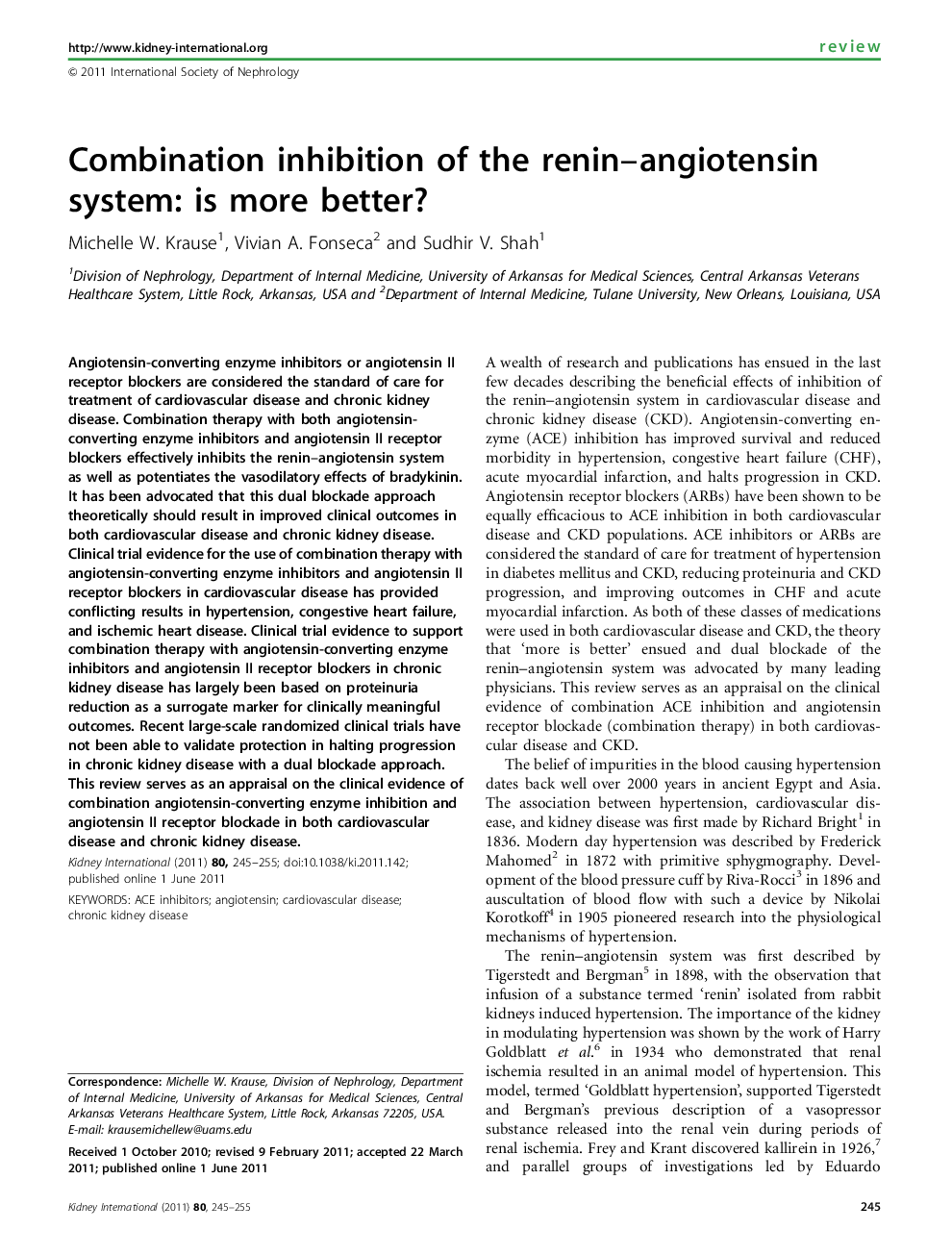| Article ID | Journal | Published Year | Pages | File Type |
|---|---|---|---|---|
| 3886152 | Kidney International | 2011 | 11 Pages |
Angiotensin-converting enzyme inhibitors or angiotensin II receptor blockers are considered the standard of care for treatment of cardiovascular disease and chronic kidney disease. Combination therapy with both angiotensin-converting enzyme inhibitors and angiotensin II receptor blockers effectively inhibits the renin–angiotensin system as well as potentiates the vasodilatory effects of bradykinin. It has been advocated that this dual blockade approach theoretically should result in improved clinical outcomes in both cardiovascular disease and chronic kidney disease. Clinical trial evidence for the use of combination therapy with angiotensin-converting enzyme inhibitors and angiotensin II receptor blockers in cardiovascular disease has provided conflicting results in hypertension, congestive heart failure, and ischemic heart disease. Clinical trial evidence to support combination therapy with angiotensin-converting enzyme inhibitors and angiotensin II receptor blockers in chronic kidney disease has largely been based on proteinuria reduction as a surrogate marker for clinically meaningful outcomes. Recent large-scale randomized clinical trials have not been able to validate protection in halting progression in chronic kidney disease with a dual blockade approach. This review serves as an appraisal on the clinical evidence of combination angiotensin-converting enzyme inhibition and angiotensin II receptor blockade in both cardiovascular disease and chronic kidney disease.
